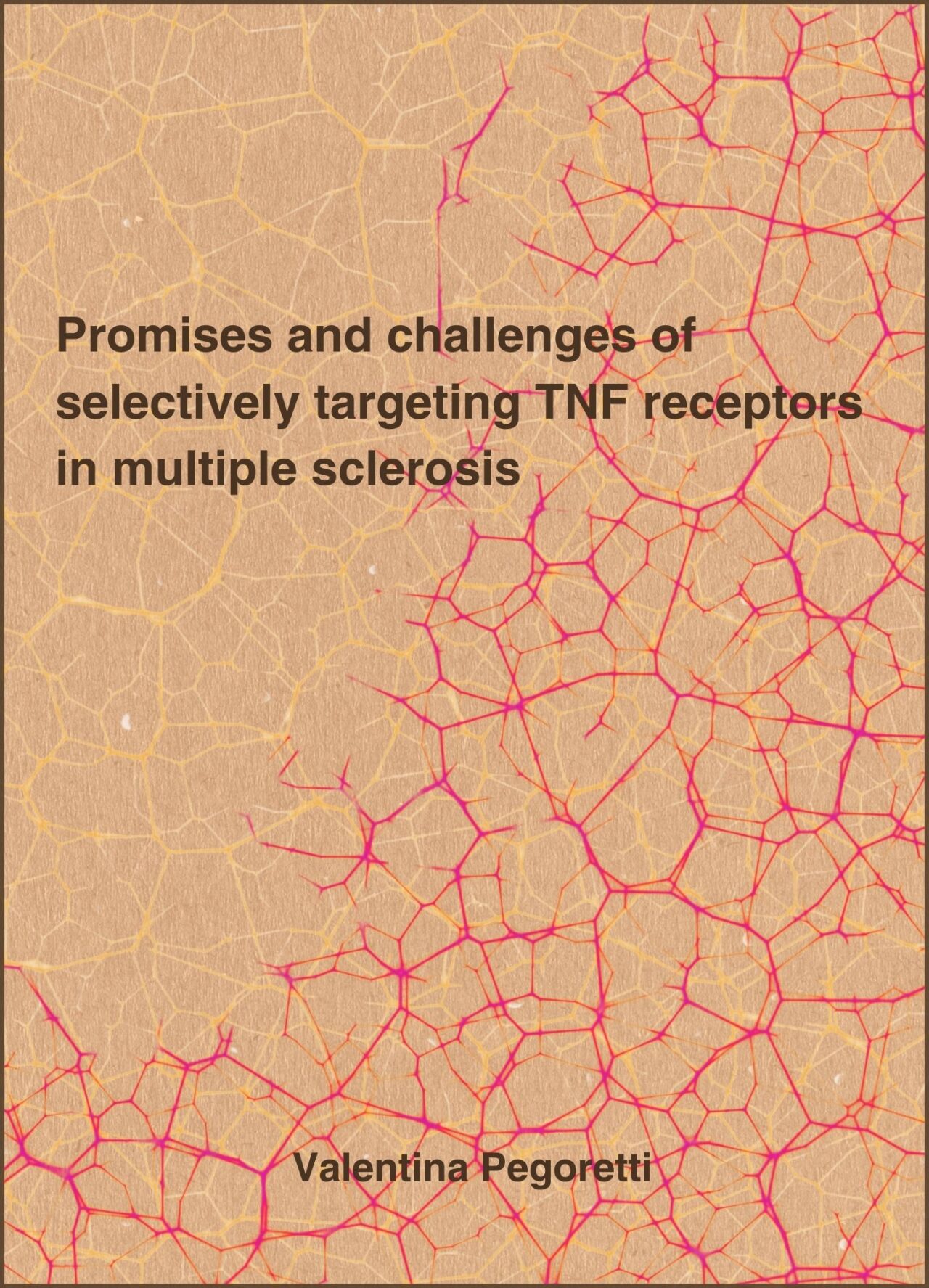
Promotie Valentina Pegoretti
Dinsdag 14 januari is de promotie van Valentina Pegoretti. Valentina heeft gewerkt bij de Faculteit Science and Engineering en werd tijdens haar onderzoek begeleid door Prof. Uli Eisel, Prof. Jon Laman en Dr. Wia Baron.
Aan de hand van 5 (Engelse) vragen en antwoorden beschrijft Valentina haar onderzoek en haar plannen voor de toekomst.
Het onderzoek werd gefinancierd door de Stichting MS Research.
What is the title of your dissertation?
Promises and challenges of selectively targeting TNF receptors in multiple sclerosis
Can you explain in about 100 (simple) words what your research is about?
Current MS treatments don’t fully address the mix of inflammation and nerve damage, especially in progressive cases. Widely used for other autoimmune diseases such as rheumatoid arthritis and psoriasis, TNF blockers were also tested in people with MS in the 90s resulting in worsening of disease symptoms. TNF is an important molecule in our body that has many functions but it was unknown at the time that it acts through two types of TNF receptors: TNFR1 orchestrates inflammation and TNFR2 promotes repair.
Targeting TNF receptors selectively consists in using a TNFR1 blocking molecule and/or a TNFR2 stimulating molecule. We demonstrated that this approach shows promise in reducing the severity of symptoms and helping nerve healing by accelerating remyelination in experimental models. Yet, future studies are necessary to understand how this treatment strategy is actually working at cellular level and its therapeutic potential for MS.
What is the importance of your research for people with MS?
Together with other studies, this research contributes to the growing knowledge that TNF receptors do function differently and, if targeted correctly, they can provide vital support to brain cells. During MS, brain tissue is under attack and needs protection. Even though we are far away from an approved drug, this research will hopefully help people with MS in the future by providing a more effective treatment.
What are you especially proud of?
I had the chance of working with different (awesome!) research groups and developed many skills (feeding my curiosity). Sometimes I am still a bit confused but I guess it is part of the researching game. I am proud I finally accepted the complexity of knowledge.
What is your next career step?
I’m keeping my options open but I’m really drawn to anything that has something to do with research.